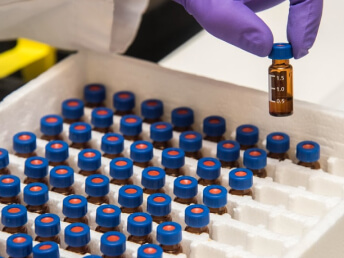Despite remarkable medical advances, chronic diseases like heart disease, cancer, Alzheimer’s, and diabetes remain the leading causes of death and disability worldwide. Conventional preventative approaches only go so far – to stem the rising tide, we need innovative new strategies targetting the underlying biological processes that enable these conditions.
Fortunately, cross-disciplinary research is unlocking novel scientific frontiers for fortifying our resilience against chronic diseases. Here are some of the breakthrough areas on the horizon:
Metabolic Optimization and Fasting
While calorie restriction has long been known to extend lifespan in animals, the latest studies are revealing just how potent optimizing specific metabolic pathways can be for human health. Intermittent fasting, ketogenic diets, and targeting proteins like mTOR are showing potential to reduce cancer risk, improve cognitive function, and prevent neurodegeneration.
At the University of Southern California, scientists found engaging cyclical ketogenic dietunchained innate anti-cancer immunity, while Yale researchers unveiled how fasting can reprogram hematopoietic stem cells (HSCs) to reverse the immune system age-related decline and dysregulation implicated in disease. Similar strategies are being explored for metabolic management of conditions like Alzheimer’s disease.
Targeting Cellular Senescence
A core driver of chronic disease and aging itself is the accumulation of senescent cells – those which have stopped dividing normally and release pro-inflammatory, pro-oxidant factors damaging neighboring tissues. Eliminating these dysfunctional zombie cells has emerged as a therapeutic target across fields.
Animal studies from Mayo Clinic have demonstrated senolytic agents that selectively clear senescent cells can alleviate diseases like osteoarthritis, atherosclerosis, and metabolic dysfunction. Harvard researchers found senolytic treatment in obese mice remodeled dysfunctional adipose tissue, boosted vascular health, and increased insulin sensitivity. Human trials are now testing the effects on diseases ranging from chronic kidney disease to Alzheimer’s and idiopathic pulmonary fibrosis.
Healthy Longevity Genomics
While our genes aren’t everything, analyzing the complex interplay of our genome, epigenome, and molecular pathways is revealing novel longevity-promoting targets. Scientists are harnessing CRISPR to precisely edit genes, while studying mobile genetic elements like SINEs to prevent excessive inflammation and retrotransposition events linked to aging and disease.
At Stanford, disrupting the destructive molecular pathways activated by transposable elements extended lifespan in model organisms. Meanwhile, at Harvard, researchers identified longevity-associated variants in genes regulating iron homeostasis – paving the way for new iron-focused interventions and therapeutic strategies.
Proteostasis and Proteostatic Modulation
The tightly regulated cellular network responsible for the synthesis, folding, trafficking and degradation of proteins – the proteostasis network – is an exciting new arena for preventing diseases driven by protein misfolding and aggregation. Enhancing or rebalancing proteostasis mechanisms could help protect against neurodegeneration, cancer and more.
Yale researchers discovered a transcription factor enhancing the cell’s ability to dispose of misfolded proteins, mitigating proteotoxicity in models of Alzheimer’s and Parkinson’s. Biotech companies are developing proteostasis modulators using drugs and nanoparticles that facilitate protein refolding and clearance. Restoring healthy proteostasis could be key for treating currently incurable proteinopathies.
From metabolic and fasting-based reprogramming, to targeting lingering senescent cells and transposable elements, to optimizing the cellular quality control systems governing protein homeostasis, scientists are illuminating powerful new pathways for chronic disease prevention. While still in the exploratory stages, these cutting-edge areas represent the future frontlines of building human resilience.
Combining emerging research fields like these with increasingly sophisticated personal biomarker profiling, “omics” screening, and real-world physiologic monitoring will usher in an era of precision prevention medicine – one where interventions and lifestyle plans can be meticulously tailored to each individual’s unique biological blueprint and vulnerabilities.
Of course, the core foundations of regular exercise, quality sleep, stress management and anti-inflammatory nutrition shouldn’t be neglected. But it’s an exciting frontier to have multi-pronged approaches linking the latest bench science to the clinic and optimizing our body’s innate disease-resistance capabilities in unprecedented ways.
Despite the immense human and economic toll of chronic illnesses, this cross-disciplinary research offers a glimpse of hope for finally solving some of the greatest medical challenges of our time. It’s a powerful roadmap for upgrading human healthspan in the 21st century.

